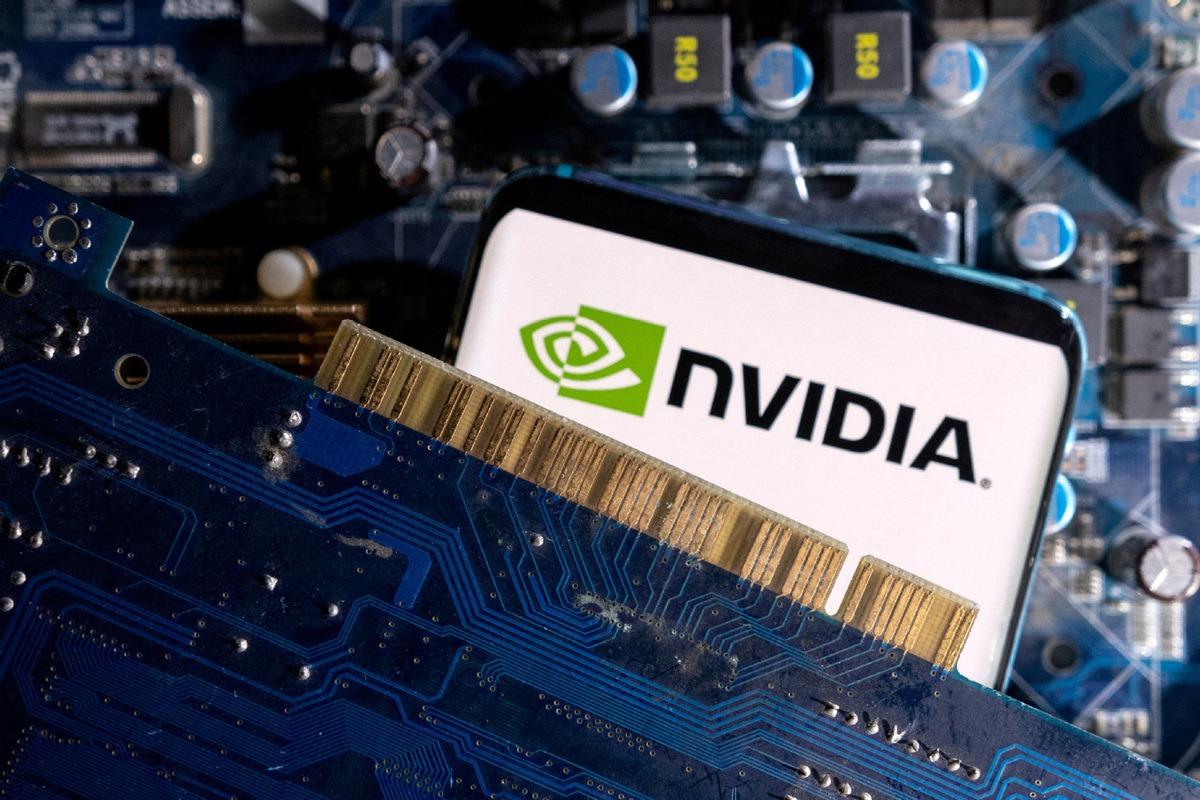 A smartphone with a displayed NVIDIA logo is placed on a computer motherboard in this illustration taken March 6, 2023. (PHOTO / REUTERS)
A smartphone with a displayed NVIDIA logo is placed on a computer motherboard in this illustration taken March 6, 2023. (PHOTO / REUTERS)
After vowing earlier this month to restrict any new chips that might help China's artificial intelligence capabilities, US Secretary of Commerce Gina Raimondo is looking into the specifics of three new artificial intelligence accelerators that Nvidia has been developing for China.
Nvidia says the processors abide by the strict China guidelines that the Commerce Department has introduced, but Raimondo said on Monday that her department is looking at the specifics of the new chips to make sure they don't violate the controls.
The Joe Biden administration claims the export controls are designed to prevent China from receiving cutting-edge technologies that it could use to strengthen its military, especially in the field of artificial intelligence.
Although Raimondo told Reuters on Monday that Nvidia "can, will and should sell" AI chips to China, pointing out, correctly, that AI chips are predominantly used for commercial applications. She echoed her remarks in her incongruous participation in the Reagan Defense Forum — the first by a commerce secretary — saying, "What we cannot allow them to ship is the most sophisticated, highest-processing power AI chips, which would enable China to train their frontier models".
Raimondo has previously acknowledged that it is not realistic to think the US can stop China's technological development, saying the goal of the administration is to slow China down. "Ultimately, we just have to run faster. Do more, run faster, so we can always be ahead."
But that should be realized through fair competition, rather than weaponizing trade and technology. Trade bullying and protectionism will only spur China to double down on its efforts to accelerate its chip development and advance its AI research.
A joint investigation of Japan-based media outlet Nikkei and Elsevier from the Netherlands found that Chinese researchers published 43,000 academic papers on AI in 2021, almost twice the number published by US researchers. And contrary to the claims that it just leads in quantity not quality, 7,410 of the papers are among the most quoted, 70 percent higher that of the US.
By insisting on the harsh export controls on the newest generation chips, the Biden administration is hurting the interests of US companies more than anybody else. None of the chip giants in the US, Nvidia, Qualcomm and Intel, want to see the day when their chips are piled up in warehouses only to accumulate one layer of dust after another.
The Semiconductor Industry Association, which represents 99 percent of the US semiconductor industry by revenue, has previously criticized the administration's restrictions, warning that they "risk harming the US semiconductor ecosystem without advancing national security", simply encouraging "overseas customers to look elsewhere".
The Biden administration has denied it is trying to hurt China economically or hinder its development, but the latest move is a further effort by the administration to force "decoupling" in the tech sector purely for political purposes.


